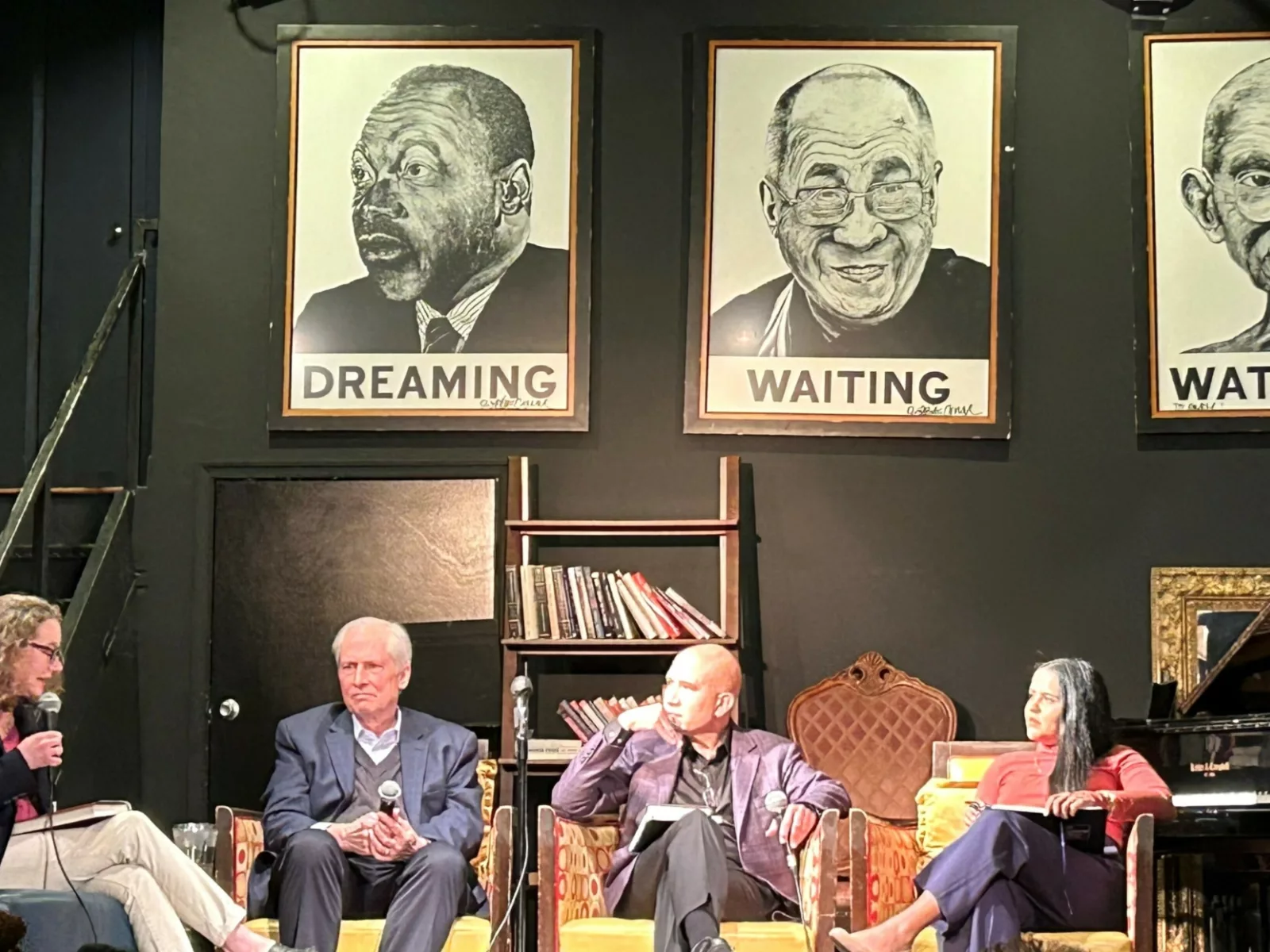Hundreds of people gathered at the Christie Institute for Public Policy in Newark, New Jersey, last week to hear former two-term Republican Gov. Chris Christie lead a bipartisan discussion about the success of New Jersey’s risk-based bail system. In 2014, Christie was a driving force behind legislative and constitutional changes in the state that essentially eliminated cash bail and replaced it with a risk-based approach.
“It offended me that we were running a debtor’s prison,” Christie recalled. “It is also wrong to have folks committing violent crime and go back out to commit more crimes. None of it is acceptable.”
Christie was joined at the AV-sponsored event by William Palatucci, national committeeman for the Republican Party of New Jersey and chair of the Christie Institute; Judge Glenn Grant, director of the New Jersey Administrative Office of the Courts; Jeffrey Chiesa, a former Republican U.S. senator and New Jersey attorney general; Christopher Porrino, a former New Jersey attorney general; Joseph Krakora, New Jersey’s public defender; Alexander Shalom, senior supervising attorney and director of Supreme Court advocacy at the American Civil Liberties Union (NJ); John Koufos, director of advocacy at Arnold Ventures; and Virginia Bersch, director of criminal justice at Arnold Ventures.
In his comments, Porrino emphasized the benefits of New Jersey’s bail reform for community safety. “[U]nder the old [money bail] system the judge could not consider dangerousness,” he said.
This money bail system, which is still the status quo in most states, permitted people with wealth to buy their way out of jail, while people without resources were forced to remain behind bars for weeks or months before their cases were resolved. This sentiment was echoed by nearly all of the panelists, including Chiesa, who noted the significant public safety and fundamental fairness benefits of risk-based bail over money-based bail.
For their part, Grant, Shalom, and Krakora all presented crime and detention statistics to demonstrate that bail reform has successfully reduced New Jersey’s jail population without imperiling public safety.
Under the previous money bail system, approximately 1,500 people were held in jail with bail amounts under $2,500. Grant noted that today, there are just four people jailed in the whole state with bail amounts under $2,500. Several of the speakers also pointed out that auto thefts have now decreased to pre-Covid levels in the state, dispelling a popular myth that the bail law was responsible for a rise in that type of crime.
Read more facts on the effect of New Jersey’s reforms here.
Closing the event, Bersch explained how New Jersey’s success in implementing risk-based bail has been an inspiration around the country. While judges will always retain discretion, “liberty cannot be determined by the money you have,” she concluded.
Read news coverage of the event at New Jersey Spotlight News and NJ.com.

Former New Jersey Gov. Chris Christie; John Koufos, director of advocacy at Arnold Ventures; Destiny Carter, advocacy manager for criminal justice at Arnold Ventures; and Virginia Bersch, director of criminal justice at Arnold Ventures at the Christie Institute for Public Policy in Newark, New Jersey, on March 21, 2023, for a public policy event on "Criminal Justice and Bail Reform: A New Jersey Case Study." (Steve Hockstein/HarvardStudio.com)

Judge Glenn Grant, director of the New Jersey Administrative Office of the Courts; Alexander Shalom, senior supervising attorney and director of Supreme Court advocacy at the American Civil Liberties Union (NJ); Joseph Krakora, New Jersey’s public defender; Jeffrey Chiesa, a former Republican U.S. senator and New Jersey attorney general; and Christopher Porrino, a former New Jersey attorney general at the Christie Institute for Public Policy in Newark, New Jersey, on March 21, 2023. (Steve Hockstein/HarvardStudio.com)

John Koufos, director of advocacy at Arnold Ventures, at the Christie Institute for Public Policy in Newark, New Jersey, on March 21, 2023. (Steve Hockstein/HarvardStudio.com)

Judge Glenn Grant, director of the New Jersey Administrative Office of the Courts, at the Christie Institute for Public Policy in Newark, New Jersey, on March 21, 2023. (Steve Hockstein/HarvardStudio.com)

Hundreds of people gathered at the Christie Institute for Public Policy in Newark, New Jersey, on March 21, 2023, for a public policy event on "Criminal Justice and Bail Reform: A New Jersey Case Study." (Steve Hockstein/HarvardStudio.com)

Hundreds of people gathered at the Christie Institute for Public Policy in Newark, New Jersey, on March 21, 2023, for a public policy event on "Criminal Justice and Bail Reform: A New Jersey Case Study." (Steve Hockstein/HarvardStudio.com)

Hundreds of people gathered at the Christie Institute for Public Policy in Newark, New Jersey, on March 21, 2023, for a public policy event on "Criminal Justice and Bail Reform: A New Jersey Case Study." (Steve Hockstein/HarvardStudio.com)




















